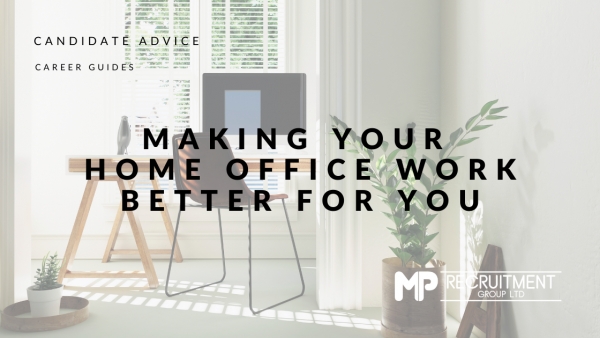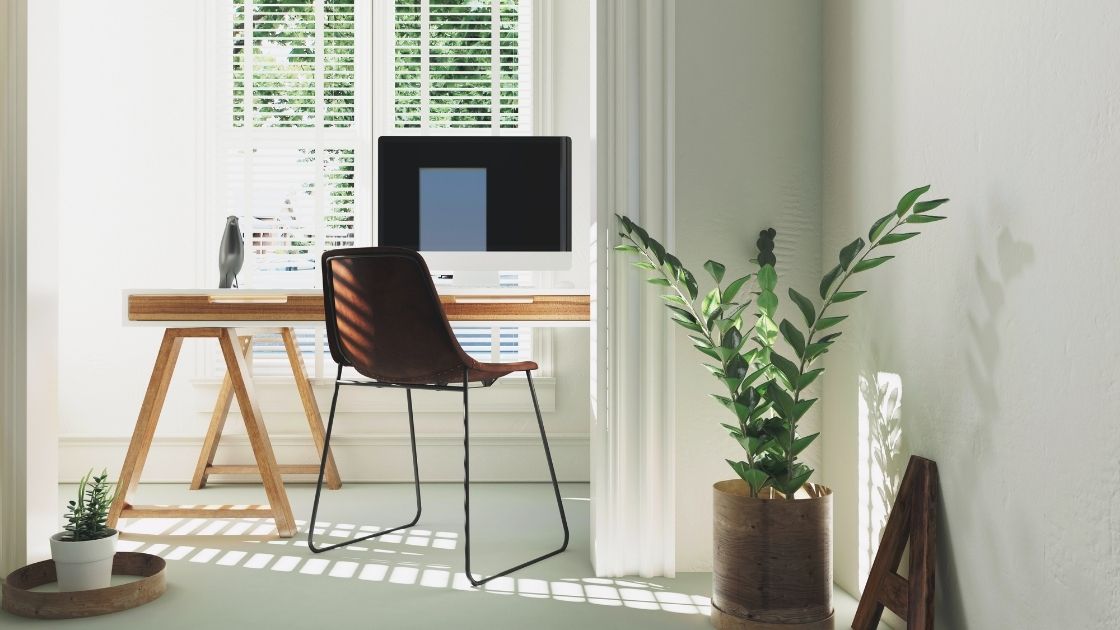Making your home office work better for you
Many of us have been working from home for a while now, and with businesses realising the benefits of home working, some of us may be continuing remote working at varying levels for much longer too. You might find that makeshift your current office setup in the form of your dining room table, sofa, or bed just isn’t cutting it. Where you work has a serious effect on your productivity and wellbeing, so it’s vital to create an area that makes you feel calm, comfortable, and able to carry out your work effectively.
Make it practical
OK, we get it. You want to make your home office look great. And when it comes to appearance alone, those picturesque home office designs you see on Pinterest are amazing. But whilst they might look good on your Instagram feed, they might not be the most practical of solutions. So before you paint your cupboards a lovely teal colour, start a search for an antique wicker chair, or buy a fully adjustable standing/sitting desk, ask yourself if these things will be worth the investment, and will they make your life more comfortable? Is that desk going to fit anything more than a laptop and one single pen? Could you actually sit in that chair for eight hours a day? Remember, this area needs to spark productivity, not a bad back.
Focus on placement
Where you decide to work in your house is a key part of getting the most out of your home office. Firstly, try to avoid designating your home office somewhere other than your bedroom. Whilst it sounds great, rolling out of bed and straight into your office chair is probably not the best way to get your day off to a creative start. If possible, choose an area that has lots of natural light. By placing your desk in front of or adjacent to a window, you’ll not only have something to look at when you’ve hit a brick wall, but you’ll also be able to give your eyes regular breaks from screen-time. If you don’t have access to much natural light, introducing standing or table lamps into your workspace could also make it much easier to concentrate. In addition to good lighting, it’s equally important to choose somewhere quiet where you’re not likely to get interrupted, chatty housemates, a loud washing machine, or a blaring TV aren’t the kinds of things that’ll make you look good on a conference call.
Avoid disturbances
There would be nothing worse than a family member or housemate walking into the room when you’re on a video conference call. Take steps to avoid this by communicating with those in your household. Agree who can enter the workspace, and when they can enter. It’s essential that you set out with the people you live with how your workspace will be used and who is able to enter. If necessary, provide a timetable to the people you live with so they can know when the area is free to use. A “Do Not Disturb” sign on the door might be helpful.
Second screen
These days many workers use two screens (sometimes even three). It reduces the time taken to switch between programmes and can boost productivity compared to one screen alone. If you only have one screen, you often can only see one thing at a time, making the switching process laborious.
A second screen will be especially helpful for people who are currently working on a laptop with a relatively small screen.
Supplies and storage
So you’ve created what seems like the perfect workspace. The only problem is, you keep having to get up to find a pen. To reduce the urge to wander off, make sure you have everything you need within close proximity of your desk. Whatever you’ll need that you probably normally have on your work desk. Pens, paper, post-it notes. This might also mean looking into creative storage solutions.
Bookcases, drawers, wire organisers, and filing cabinets are a great place to store your essentials.
Keep your desk tidy
You’ll inevitably build up clutter on your desk over time, so it’s important to declutter from time to time. Whilst there will always be some essentials you’ll have to keep nearby, it’s likely that your desk will only fuller as time goes on, which makes regular decluttering an important task. Set some time aside to sort through your things, figure out what you need to keep, what you need to put away, what you need to dispose of, and what you need to move. Whether it’s old notes you no longer have a use for, printouts you used for past meetings, or one of your child’s toys, there’s probably a better place for it than your desk.






